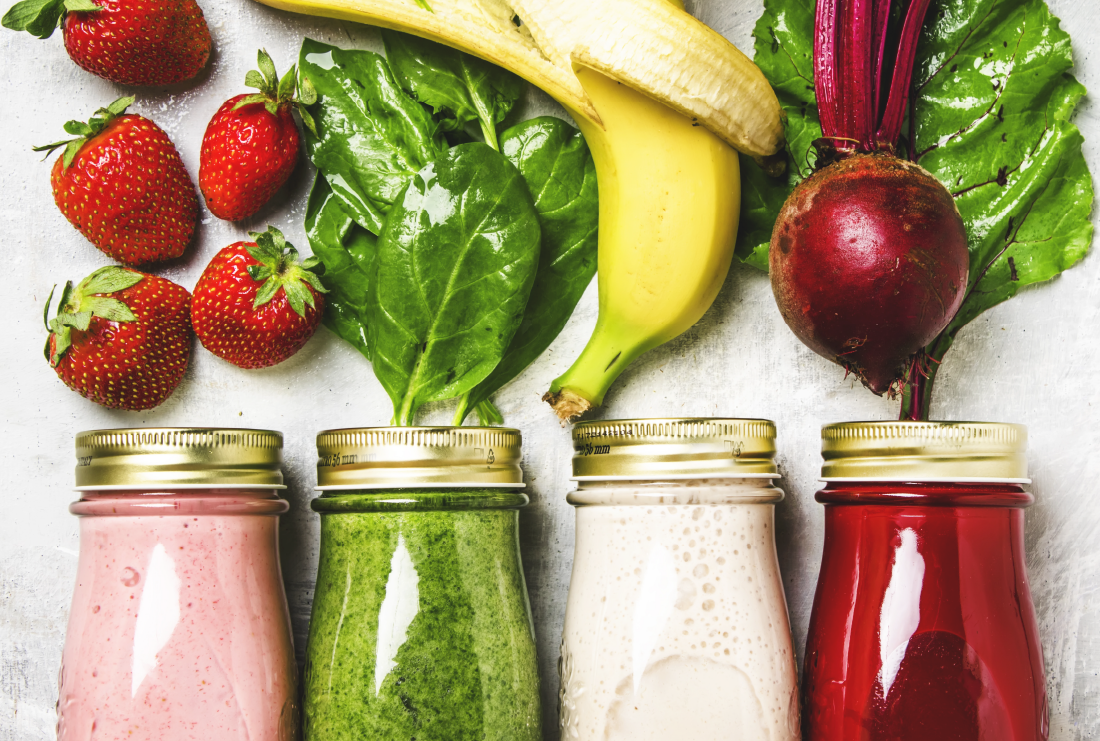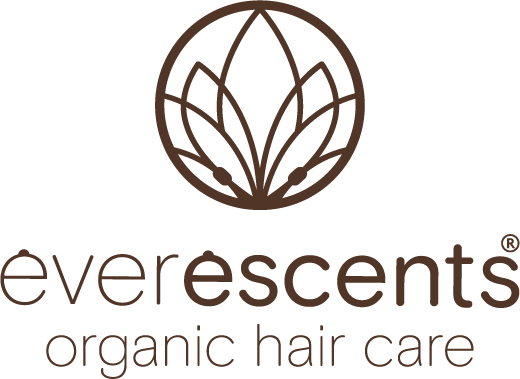Before you can get a gorgeous ‘do’, you must start with healthy hair. One of the best ways to get healthy hair is by eating a healthy diet. Although hair essentially amounts to a bunch of dead cells, a good amount of nutrients are needed to keep your hair healthy, shiny and strong.
But don’t fret – you won’t need to change your entire diet to make for healthier hair. Most of the foods you need are probably already part of, or easy to incorporate into, your diet, even if you’re vegetarian or vegan.
In this article, you’ll find a list of key nutrients that your locks will love, along with delicious meal and snack ideas that will not only satisfy your taste buds, but also pack a punch with many of the key vitamins and minerals needed both for your body and hair.
Key Nutrients
Protein
Protein is absolutely essential not just for healthy hair, but also for hair growth. Hair is composed of a protein called keratin, so make sure to get enough protein in your diet. Good sources are lean poultry, eggs, fish and dairy. Lean red meat, legumes and nuts are also excellent sources of protein.
Omega-3 Fatty Acid
Omega-3 fatty acids are good fats that our bodies don’t make, so we have to get them from food or supplements. The best sources of omega-3 come from fatty fish like salmon, mackerel, sardines, anchovies, tuna and herring.
If you’re vegan or not a fan of fish, you can also get a good dose of Omega-3 from flax and chia seeds/oils, or fortified pastas, dairy products and juices.
Iron
Iron is an essential mineral that helps move oxygen throughout your body via your bloodstream. Since hair follicles are nourished by nutrient-rich blood, iron plays an important part in keeping the supply of oxygen circulating to the roots. A lack of iron can cause anemia, and often results in hair loss.
There are actually two types of iron that people consume. Heme is found in animal meat, and non-heme is abundant in plant-based foods, though also contained in animal sources. Heme iron is more easily absorbed by the body, although the majority of dietary iron is non-heme.
Foods high in heme iron include red meat, shellfish, fish, and organ meats like liver (if you’re an adventurous eater). Otherwise non-heme can be found in dark leafy greens, soybeans and lentils, and fortified rice, cereals, and oats.
Magnesium
Magnesium might be my favorite of all the nutrients we need for great hair. Why? Because a good source of it is dark chocolate. Yes, you read that right. Count me in for getting enough of this mineral!
Magnesium is a critical element needed for multiple body functions, including promoting follicle hair growth. A deficiency can affect everything from blood pressure to bone and muscle health, as well as hair loss.
Aside from cacao, you can get more magnesium in your diet by eating almonds, peanuts, black beans, cereals, soy and avocado.
Selenium
Selenium is another mineral needed for proper hair growth. In addition, it acts as an antioxidant to help neutralize free radicals that contribute to follicle damage. You can get selenium in your diet from eating brazil nuts, tuna, ham, cottage cheese, eggs and brown rice.
Zinc
Zinc deficiency is well-known for causing hair loss. It’s an essential trace element, which means the body can’t make it on it’s own – you have to ingest the mineral to get it. Oysters are super-high in zinc.
Other good sources to get your daily dose of zinc are red meat, shellfish, fortified cereals, nuts and beans.
Biotin
Another element that’s well-known for curbing hair loss is biotin. Biotin is a B vitamin (sometimes called vitamin H – who knows why) that is beneficial for your skin, hair and nails. Most healthy adults already get enough from the foods they eat – biotin is plentiful in egg yolks, meat, fish, soy, mushrooms, and cruciferous veggies like broccoli and cauliflower – so most people aren’t normally biotin-deficient.
However, there is one group that does tend to be deficient in this vitamin – pregnant women. If you’re expecting, you may need to supplement your diet with prenatal vitamins that include biotin to support your health and your hair.
Beta Carotene
Beta carotene is the orange-reddish color you see in fruits and vegetables like carrots, sweet potatoes and sweet peppers. As an antioxidant, it’s a precursor to vitamin A, which helps your scalp produce sebum.
Antioxidants are important for neutralizing free radicals, which are molecules that can cause damage in the body, skin and hair. Exposure to the sun and pollution, as well as consuming alcohol and/or cigarettes all contribute to the formation of free radicals.
To counter them, vitamins and minerals (primarily vitamins C and E, selenium and beta carotene) help the body repair itself from oxidative stress, which can cause damage to cells and inflammation.
Vitamins A-E
Everyone knows they need to get their vitamins, but who knew they did so much for hair? In case you need any additional reasons to get your vitamins, here’s what they do for your tresses:
- Vitamin A promotes sebum production on your scalp, which acts as a natural conditioner
- Vitamin B5 helps with blood flow to the scalp. Biotin (B7), niacin (B3) and folate (B9) are also necessary for hair growth
- Vitamin C is a heavy hitter – it acts as an antioxidant to reduce damage and breakage, creates collagen to strengthen strands, and helps the body absorb iron
- Vitamin D stimulates hair follicles – a deficiency can lead to hair loss
- Vitamin E is another antioxidant that counters free radicals and oxidative damage
Seaweed & Spirulina
Fish and shellfish aren’t the only food sources from the sea that provide the elements you need for healthy hair. Some of the best sources also come from marine algae, or seaweed.
Seaweed contains a lot of the essential vitamins and minerals, as well as omega-3 and omega-6 fatty acids that help hair grow, stay strong, and even prevent greys. You’ll get a good amount of B vitamins, magnesium, copper and even some protein by eating seaweed.
Another marine superfood is spirulina – a type of microscopic organism that grows in both fresh and saltwater. It’s packed with tonnes of nutrients similar to seaweed, with a higher protein content. Spirulina is usually sold as a powder to be mixed into foods or smoothies, or in pill form as a supplement.
Hair-healthy Meals
It’s all fine and dandy to know what key nutrients to eat for great hair, but how do you actually incorporate these into the foods you eat every day?
There are many great options and food combinations that will help you get all the proteins, vitamins and minerals you need throughout your day.
Remember, it’s always better to get your nutrients from food rather than supplements. Getting specific vitamin and mineral combinations together, such as iron and vitamin C, is also beneficial as vitamin C helps the body absorb the iron you ingest.
Breakfast
Peanut Butter Greek Yogurt Parfait
- Greek yogurt provides protein for hair growth and production
- Berries have a lot of antioxidants to counter oxidative stress that damages hair
- Peanut butter is high in vitamin E, which neutralizes free radicals and damage, as well as magnesium, which promotes follicle hair growth
Avocado Toast with Eggs, Spinach, and Tomato
- Eggs for protein (growth) and biotin (keratin production), as well as zinc (helps with sebum production) and selenium (neutralizes free radicals that damage hair)
- Avocado contains vitamin E and fatty acids that are essential building blocks for cells
- Spinach contains folate, iron, and vitamins A and C, which all support hair growth
- Tomatoes are high in vitamin C
Maple Custard Oatmeal (Made with Eggs)
- Eggs – protein, biotin, lysine and vitamin D
- Oatmeal is a good source of iron, selenium, magnesium and zinc
Lunch
Greek Avocado Chicken Salad
- Avocado keeps hair healthy and strong
- Chicken – make sure it’s lean! Great source of protein and B vitamins
- Pine nuts are high in antioxidants and essential fatty acids
Morrocan Carrot and Lentil Salad or Red Lentil Carrot Soup
- Great for vegans
- Lentils are good sources of protein, iron, biotin and zinc
- Carrots contain beta-carotene, which converts to vitamin A to produce sebum on your scalp
Out To Lunch? Eat This
Iron, protein, vitamins A and C:
- Beef fajitas
- Chinese stir-fried beef and peppers
Omega-3 and vitamin D:
- Salmon burger
Folate, protein, manganese, zinc and copper:
- Hummus and falafel
Snacks/Treats
- Dark chocolate is high in magnesium, iron, and copper. Make sure it’s at least 70% dark cocoa and of course, don’t over do it, or your waistline won’t be happy.
- Almonds and walnuts are chock full of vitamin E, B vitamins (niacin, folate, and biotin) and zinc
- Brazil nut cookies – brazil nuts are very high in selenium – just one can provide your daily recommended intake. There is a risk of overindulging so don’t overdo it – excess selenium can cause health problems including hair loss and brittleness.
- Fresh fruit – berries of all kinds, kiwi, guava, papaya, and oranges or tangerines. Aside from vitamin C, you’ll get a good dose of antioxidants to help fend off damage.
- Sunflower seeds are high in vitamin E and omega-3 fatty acids
- Pumpkin seeds are a good source of zinc and magnesium
Dinner
Grilled Salmon with Spinach and Yogurt Dill Sauce
- Low carb meal
- Salmon for omega-3 and vitamin D
- Spinach for iron and vitamins A and C
- Yogurt gives you extra protein and is often fortified with vitamin D
Black Bean and Sweet Potato Salad
- Vegan option with lots of nutrients
- Sweet potatoes contain a ton of beta-carotene, which gets converted to vitamin A
- Black beans give you protein, zinc, iron and lysine, an amino acid that helps produce collagen
Soy Sauce Chicken and Shiitake Mushrooms
- Chicken for protein and lysine
- Shiitake mushrooms contain copper, which helps keep strands strong and may help stave off grays
Southwest Beef & Sweet Potato Skillet
- Beef is high in iron, zinc, and protein
- Sweet potatoes for sebum production and hair growth
Source:


